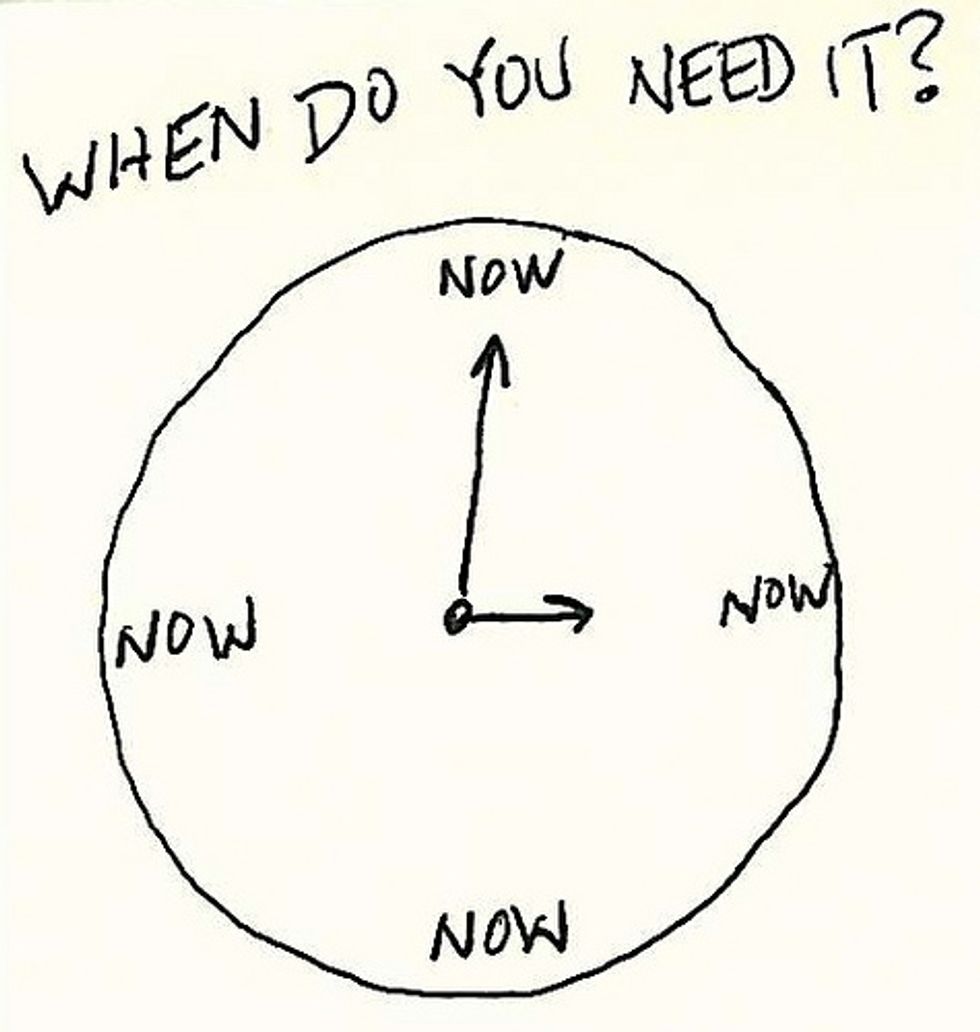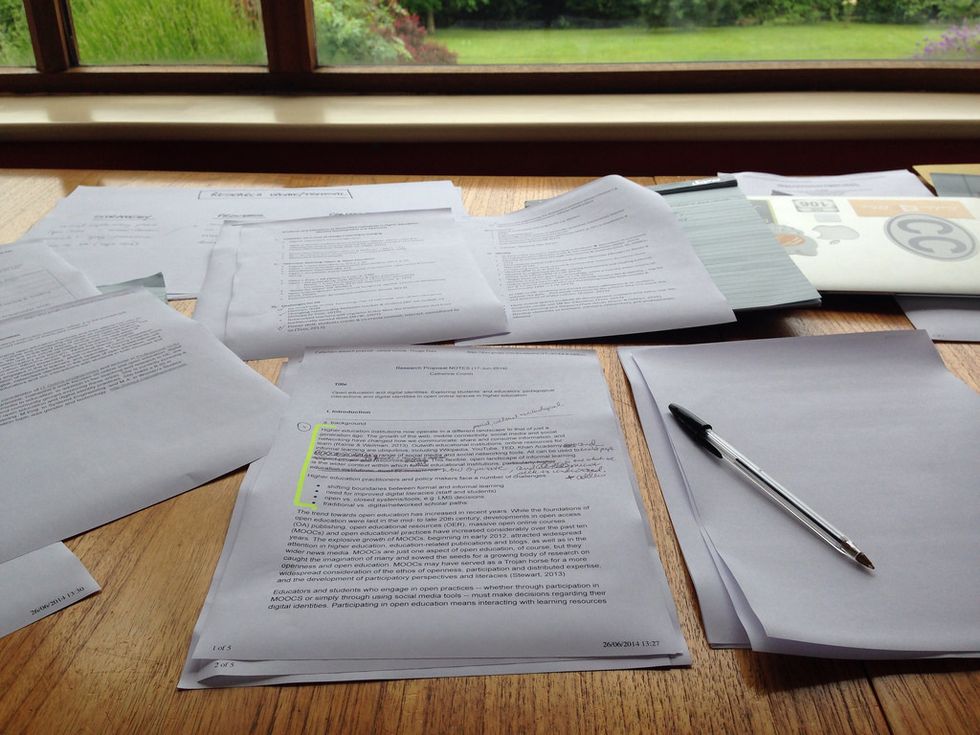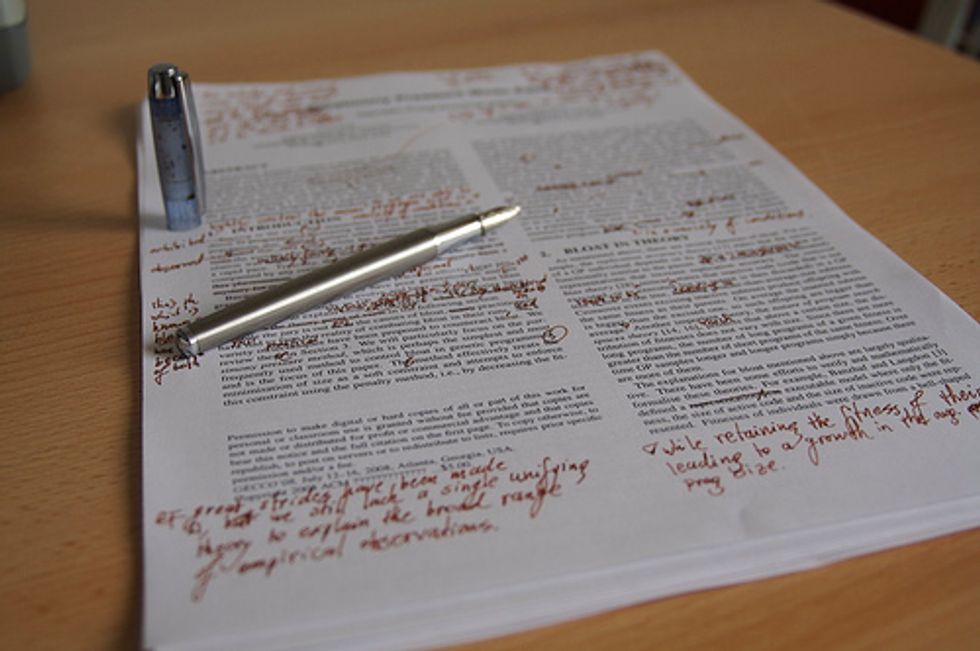One of the most daunting tasks for anyone with a tendency to procrastinate is writing a research paper. Most of the time, procrastination stems from a bad case of perfectionism, and having to make something as big as a research paper perfect can seem a little impossible and super overwhelming. Here are some tips to keep yourself out of the pit of procrastination and still produce a near-perfect quality paper:
1. Break it down into tiny tasks.
Since the main reason a research paper seems overwhelming is the size of the thing, one way to make it seem more possible is to break it down into manageable tasks. Try to break it down as far as you can into tasks that take about 20-30 minutes each, and then make a physical to-do list to track your progress (and prove to yourself you're really making progress). Your list could include things like "find sources," "annotate sources," "create a thesis statement," "write introduction," etc. Breaking it down like this makes the whole project seem less intimidating; plus, it gives you an idea of how much time you'll actually need so you can...
2. Set your own deadlines.
Your professor will most likely only give you one deadline for the final draft, so you've got to hold yourself accountable for everything else along the way. For us procrastinators, this is intimidating in itself because we're really good at convincing ourselves we don't have to do that thing right now and then we put it off until later. Giving yourself deadlines for your steps along the way keeps all your manageable tasks from piling up on you and becoming unmanageable again.
3. Make those deadlines ridiculous.
It's important to leave room for error. Give yourself a lot more time than you think you need for each task so you can fall behind if you need to without really falling behind. (That also means starting early!)
4. Get more sources than you're required to.
This is just a tip for writing research papers in general. If the professor tells you to get a minimum ten sources, the temptation is to get seven good sources plus three you can't really use--your professor won't know--but this hurts you more than you'd think. Having fewer sources gives you fewer things to talk about, which makes it harder to develop your points and make your paper as long as it needs to be. If you find more sources than you need, you can throw out the ones that don't help and still have enough to talk about. Plus, if you have more than the minimum, you'll impress the professor.
5. Spend more time on the research than the actual writing.
The most important part of a research paper is the research. Sometimes, it's easy to get so caught up in getting it done and just writing the thing (especially when it's getting done at the last minute) that the actual research gets neglected or done hastily. However, the best way to efficiently get a great research paper done is to spend more time reading/annotating sources and planning than on actually writing. This works for two reasons: 1) You can trick yourself into getting more done. When you're actually writing the paper, there's a lot of pressure to get it right the first time; however, when you're just reading sources and outlining ideas, you can think through those ideas and change your mind and reorganize everything without that pressure. So, spending more time on this step actually lets you develop your ideas better and get more done. 2) You'll know more about what you're writing about, so at this point, the paper practically writes itself!
6. Write.
Now that you've taken all the preliminary steps, gotten ahead of schedule, and taken the time to really think about and develop your ideas, writing the paper will be a breeze. (Comparatively, anyway).
Writing a great research paper when you're a procrastinator is all about turning what seems impossible into something manageable. When you get a head start and take it one small step at a time, it's not all that daunting after all.










 The minimum wage is not a living wage.
StableDiffusion
The minimum wage is not a living wage.
StableDiffusion
 influential nations
StableDiffusion
influential nations
StableDiffusion











